This spring, from March to May 2025, Dartmouth College students Sumant Sharma and Ben Shaman undertook a roughly 86-day, 2,700-mile canoe journey across Europe. This is Part Three of their journey.
***
And now, the Black Sea glimmers before… wait, that’s not it.
I write to you from the confines of my tent, two days out from Belgrade, 1,100 kilometers short of our intended final destination. Yeah, we “failed.” Too many random delays, half-day thunderstorms and an overly ambitious (see: downright impossible) itinerary. We reached Belgrade five days too late to make finishing at the Black Sea feasible. Pushing to the sea would lead to conflicts with summer jobs, and even going for the extra week meant getting from rural Bulgaria to a major airport would have been a genuine challenge.
It is a funny feeling to have preached about the escape from reality this trip offers only to be dragged back home by the life we intended to rise above. The thoughts of old habits and routines seep into conversation, with Ben and I planning work schedules, choosing fall classes and thinking about graduate school. Now that the end of the trip is upon us, we are beginning to fall right back in to the mold of typical college students. “We’ll just have to cope,” we tell ourselves as we plan for this childish daydream of paddling to end. But is this really the end?
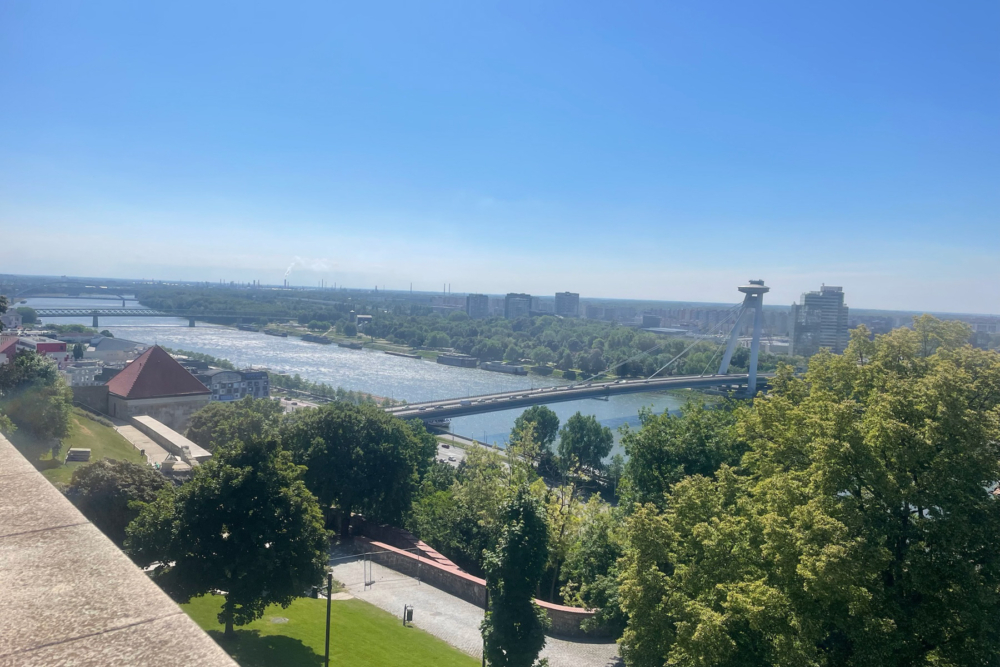
We’ll find time in our summer work schedules to meet. He’ll teach me whitewater canoeing, I’ll teach him whitewater kayaking, and both of us will inevitably swim on our first laps. We’ll drag friends onto trips in the fall, ensuring them we have the gear and know-how to take care of them. And we’ll surely get the bug for another adventure. Ben wants to return and finish out the remaining 700 or so miles, get the FKT down the Connecticut River and check out the Gaspe Peninsula, whereas I’ve set my eyes on other places of the world I can access through paddling like El Chaco, Ecuador, the Amazon River or the unrun rivers of Kyrgyzstan.
This trip was never about conquering a route. It’s a starting point for the rest of our lives, telling us what we can do if we really want it.
And boy, did we do a lot. We made it through portage-ridden canals, portage-ridden upstream paddling (for 240 miles), more portages (this is a recurring theme if you haven’t caught on), four capital cities and over 1,600 miles of waterways. If we had started just on the Danube, we would’ve been done almost a month ago! Wow, my hand hurts from all the back-patting. And portaging. Yes, I know you know.
Before this, I (Sumant) had never been to Europe and I wanted to experience the whole nine yards. And I did. It is impossible to cram everything I felt and saw into this piece so I’ll say this much: the people make the place.
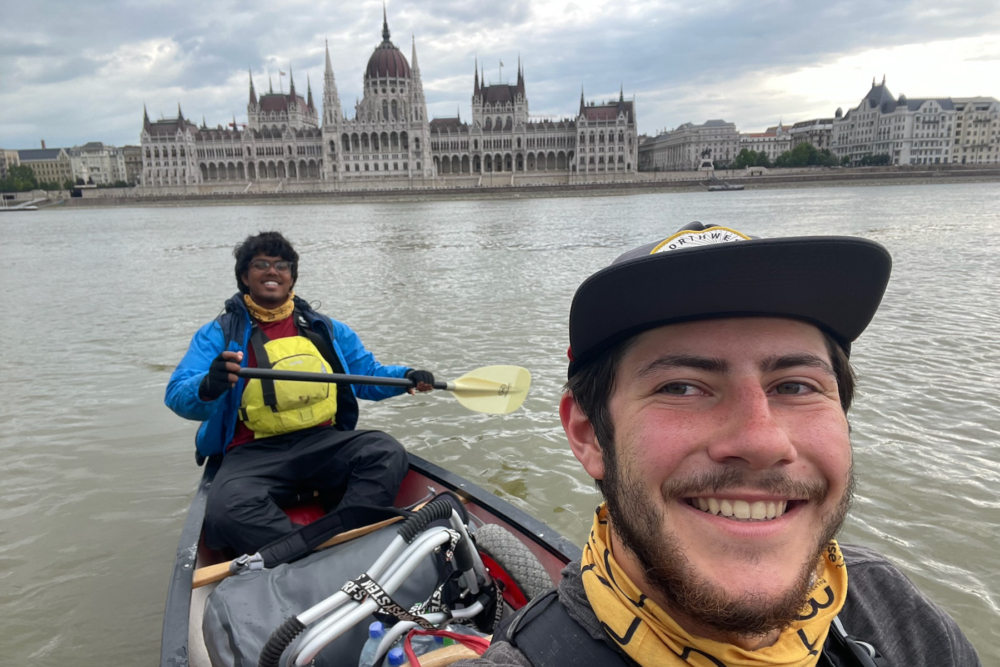
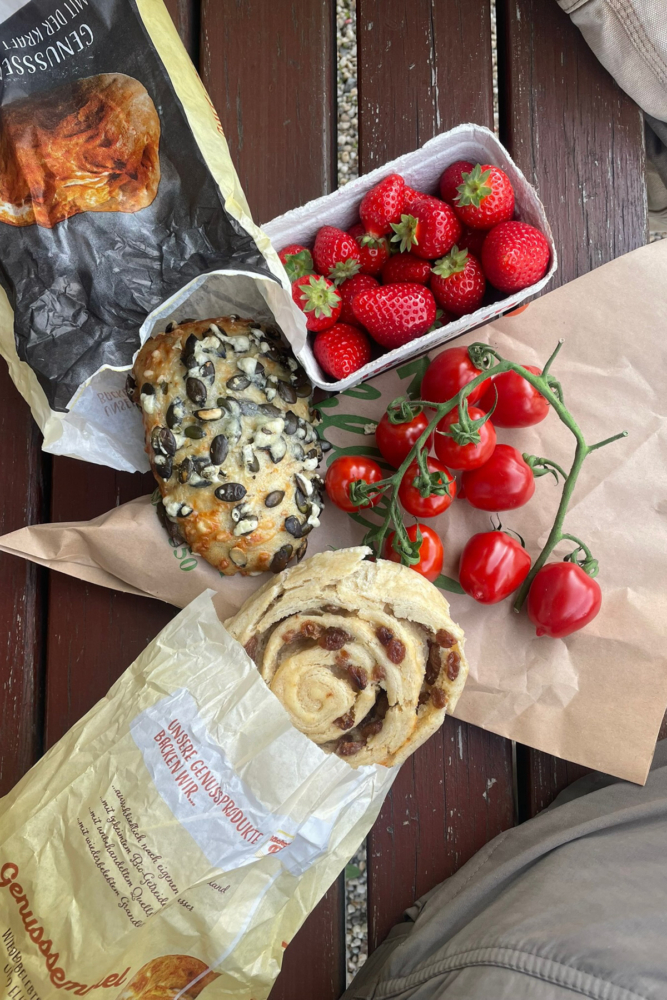
Today, I walked into a dilapidated Serbian town for a water resupply. I felt like a martian with even the street dogs turning their heads to stare at me. It’s still unclear whether it was my dark brown skin or my full set of rain gear that was more alienating. I was aware this town had a culture beyond me, yet as I was checking out, the cashier came around the register to help me bag the several jugs of water. She flashed me a knowing smile as I said my thank yous and left.
Similarly, alongside the bustling streets of Vienna, Ben and I found a cheap hot dog stand recommended by some locals. The owner watched over us as we ate, making sure it wasn’t too spicy, that we had enough napkins and asked if we wanted extra sauce. He laughed hysterically when I whiffed my shot at the trash can from about three feet away. If I wasn’t traveling by canoe, I would never have gotten the recommendation to go to a hot dog stand in Vienna, nor would I have ever ended up in that Serbian town.
It is safe to say that life on the Danube has treated us well. Out here, the days stretch long and slow. The sun shines down on us as we paddle, and though the hours seem to linger, the weeks somehow slip by. There are many days we don’t see anyone aside from the odd fisherman waving from their motorboat. Our biggest concern is where to sleep, and even that never takes much energy to solve. The rest of the day is just… time. Time to think, or not think. To notice the birdsong, which is astonishingly consistent out here. To watch the way light reflects off the water; to simply exist in motion.
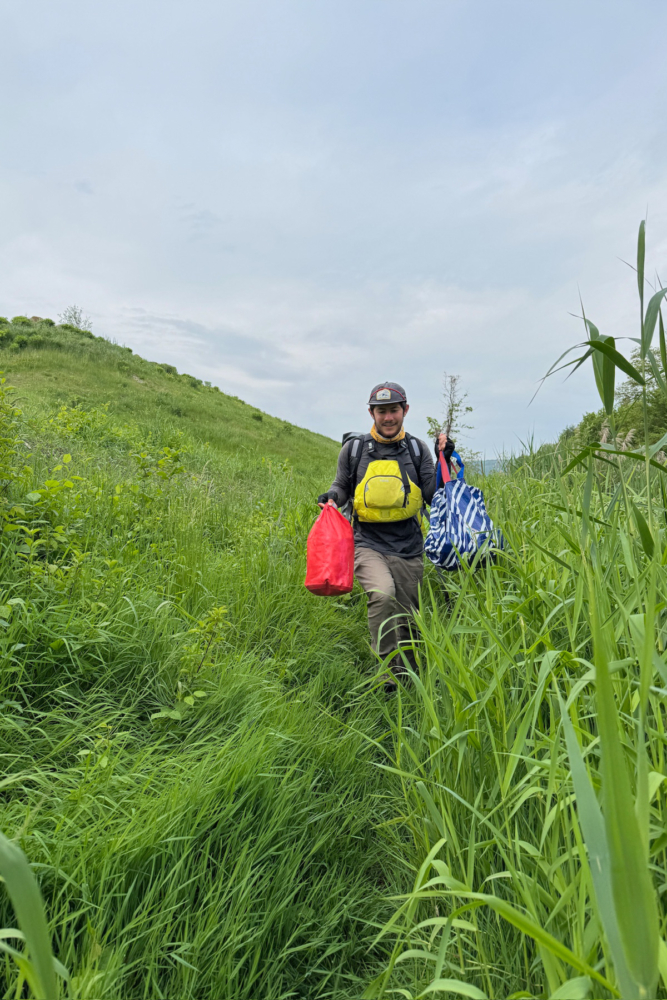
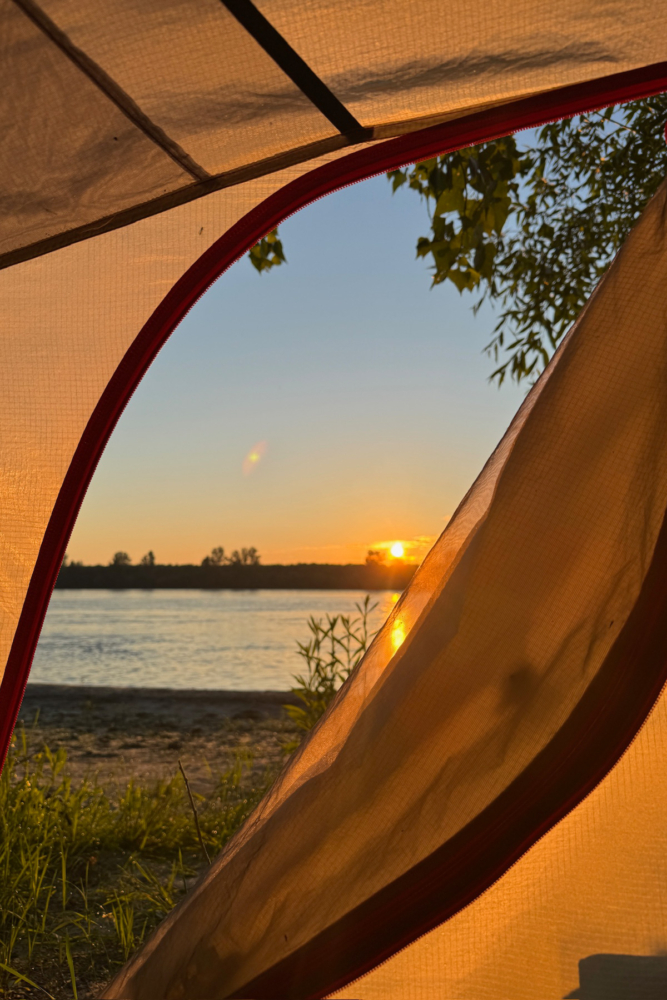
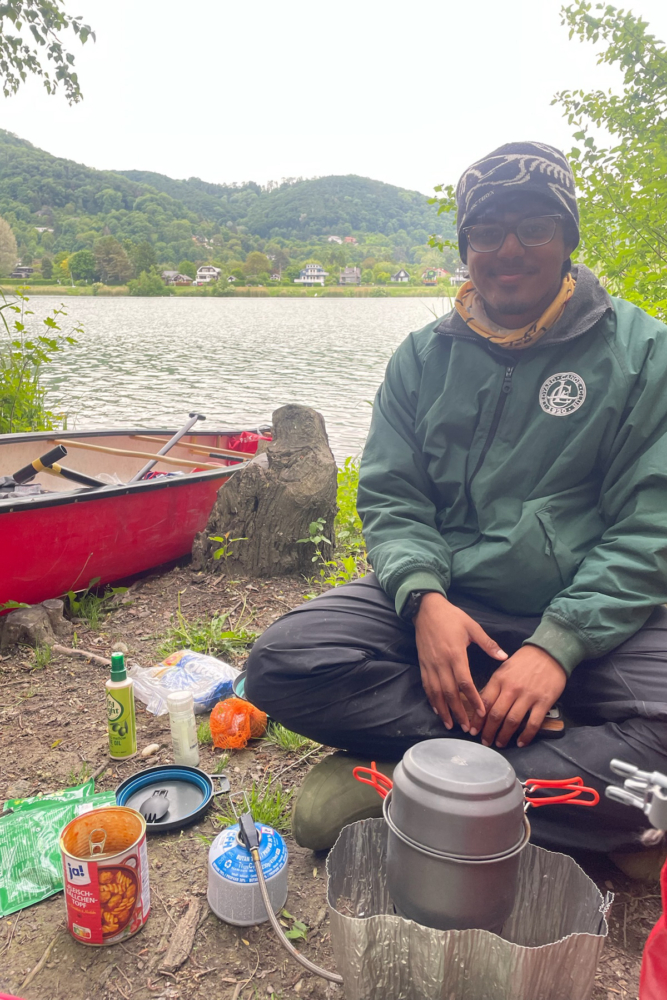
It’s a strange rhythm. We have all the time in the world, and yet our interactions are so fleeting. Take Milan from the Dunajčík Boat Club in Bratislava. He gave us a warm welcome when we arrived, telling us we could stay at the club for free. When he realized we were planning to walk, he gave us a ride to the supermarket—and then sniped payment from us at checkout. “That’s ridiculous,” we said, but he insisted he was just paying it forward.
By this point, Milan felt like a close friend, but we’d only known him for two hours, and we’ll likely never see him again. We met a few other thru-paddlers and thru-bikers, and when we did, there was a similar, easy camaraderie. Where did you start, and where are you headed? We’d trade stories and tips, and offer snacks or intel about what the river and conditions looked like ahead.
So, despite our lack of interactions with others, we ended up building ourselves quite the safety net. Each time we met someone new, they offered their phone number without hesitation, telling us to call if we ran into trouble. We carried an InReach the whole time, just in case. But by just over a week in, it wasn’t our go-to option anymore.
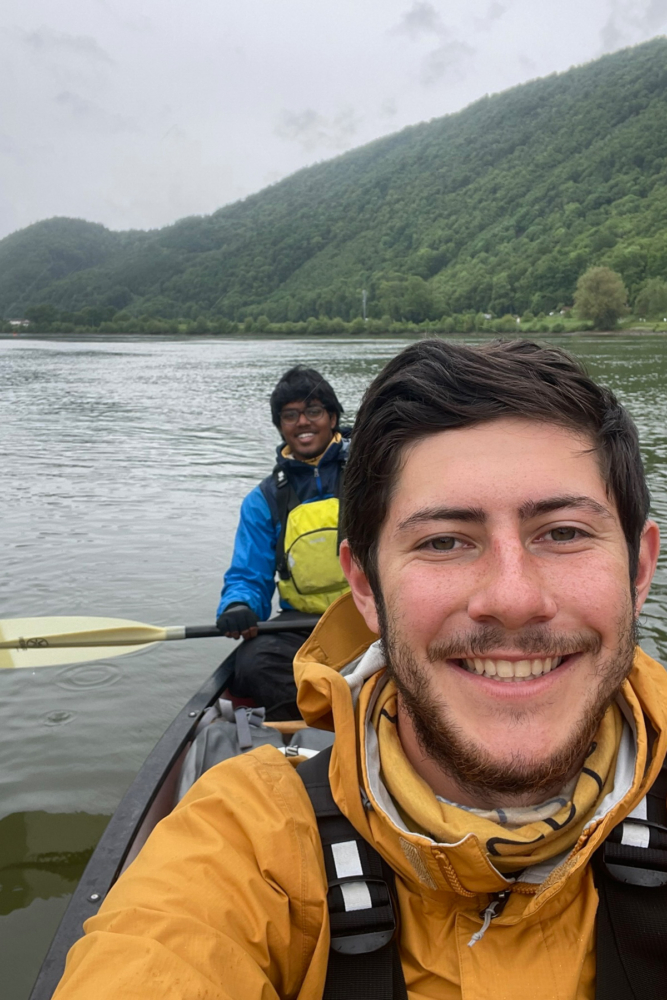
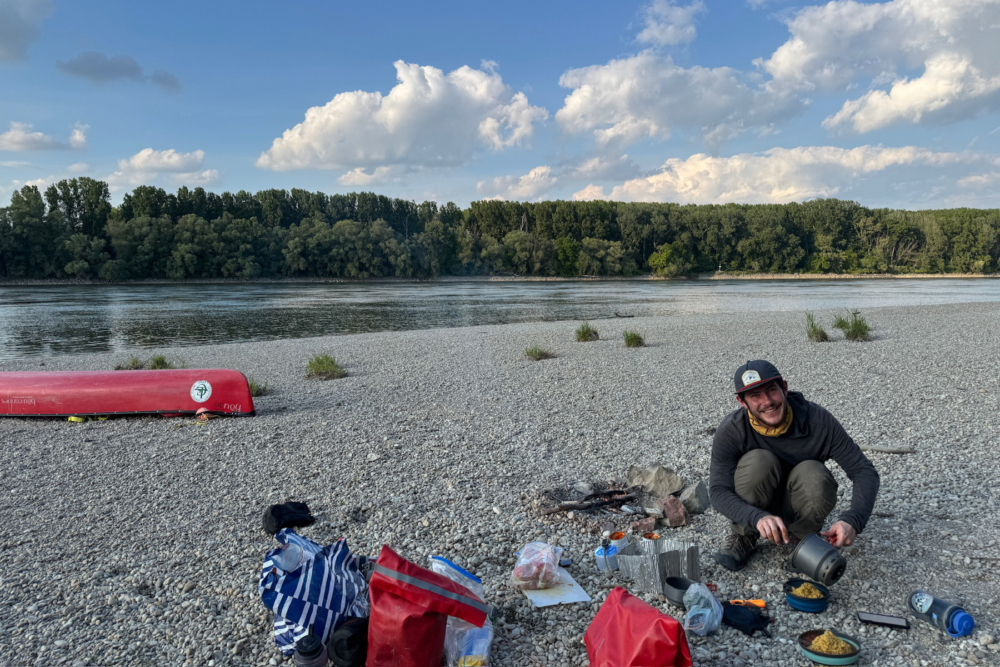
It’s a pace of life that doesn’t feel built for the “real world.” But there’s something undeniably powerful about getting to step into this slowness. Paddling is simple, and somewhat unique in how universal it is around the world. Most places we passed through had some kind of paddling culture, whether it was flatwater kayaking, rowing or slalom. Even in unfamiliar places, the act of paddling connected us—not dramatically and not always deeply—but enough to feel like we weren’t on our own.
However, all good things must come to an end, right?
There was nothing glamorous about our last day. We woke up to our only sunrise before 5 a.m., calmly ate the same oats we had for the past 70 days, and had our earliest start yet at 6:48 a.m. It was a hot day where we were at the mercy of clouds and wind for relief from sun. We paddled past vacation homes, industrial sectors and mostly wild land. One routine pee break and, six hours later, we were on the outskirts of Belgrade.
Arriving in the marina, we first pulled into a boat ramp rendered useless by the water being two meters lower than normal. We stepped out onto a muddy, rancid-smelling riverbank, realized we were in the wrong spot, and quite poetically paddled upstream just as we had done on that first day of the trip. Ironically our original bare-bones itinerary (that included no rest days) had us arriving in Belgrade on the 71st day, such that the only days true to the original plan were the first and last.
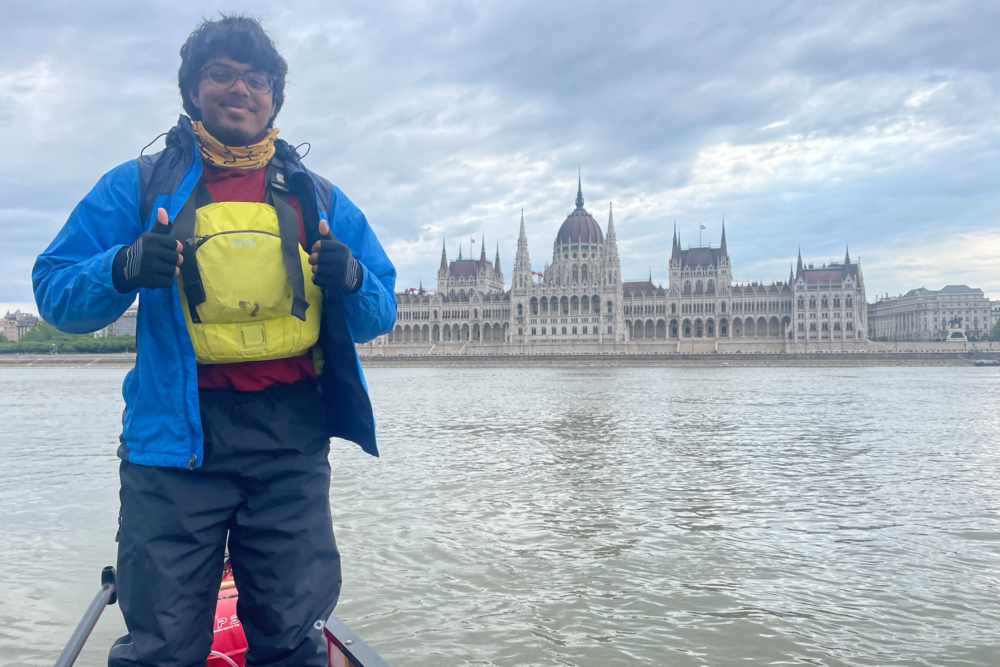
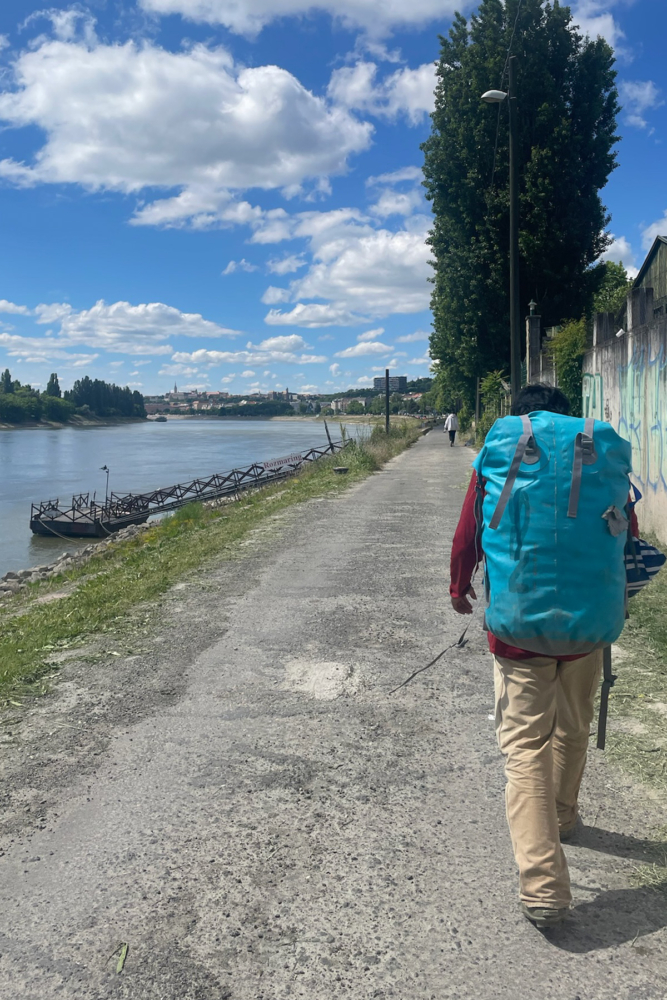
With little faffing and no fanfare, we had a stranger take a photo of us to commemorate the occasion and locked up our canoe to be sold the next day. We ate lunch on a park bench and mused over what to do. Once our ritualistic dance of public transport-hostel-shower-laundry-dinner-beer was complete, we went to sleep, exhausted. Mentally, the sense of completion hadn’t hit. I did warn you: this was never about conquering a route.
Nothing about this trip has been wrapped up neatly with a bow, nor does it come with a receipt to tally everything we got out of it. Seventy-one days is almost 1% of our 21-year-old lives. The constant, slow ebb of the Danube has shifted sands, defined edges and deepened grooves. It still pushes us along. We have found a new way of life out here: new habits and routines and perspectives and things yet unbeknownst to us.
Take, for example, our homesickness. Ben and I, believe it or not, sorely missed our parents. When I’m back at school, I’ll still keep up the habit of asking my mom what she had for lunch along with scraping out other details I previously would never have asked for when we call (which will be more frequently than before, Mom, I promise). We won’t mind walking through pouring rain back to our hotel, because wet things dry and we don’t have to paddle in it. I will finally start using sunscreen. We’ll appreciate every paddle stroke in any sort of current so much more. We’ll talk to strangers more often and offer them help if they need it. Ben is already excited to take AT thru-hikers grocery shopping when they stop by Moosilauke Ravine Lodge.
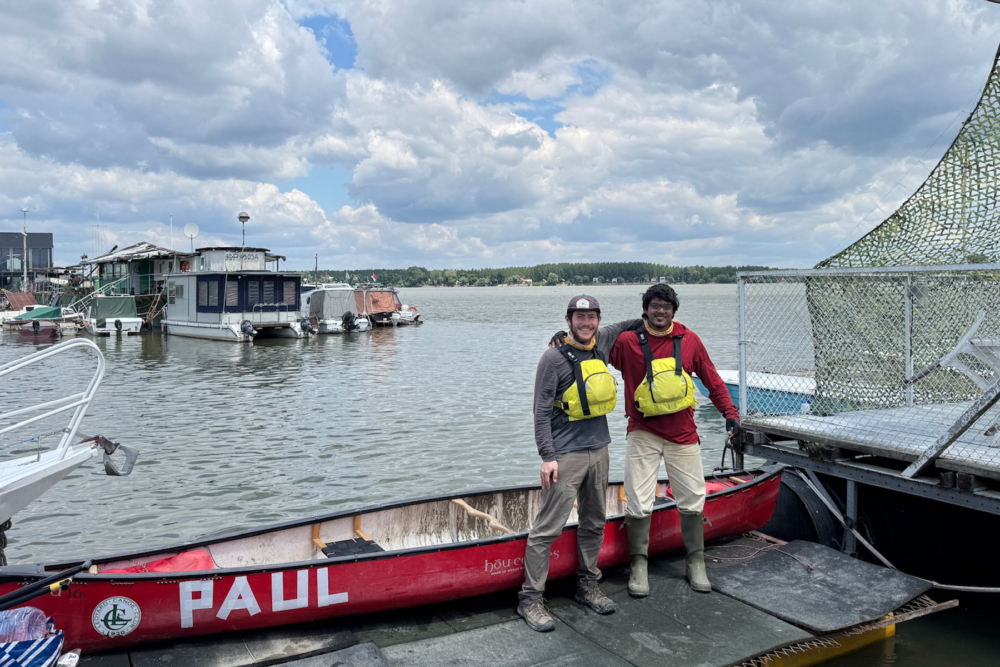
In the future, there will be a multitude of moments when we are reminded of our journey, whether it’s through something like that opportunity to pay forward the kindness we received or in that odd half-hour between classes where we sneak down to the river to relax. We can dip our fingers in the life rushing around us and, underneath the roiled surface, make out that slow ebb of the Danube still pushing us along.
It’s only a matter of being intentional with our time: choosing to flash a smile, cook dinner with friends, skip homework to teach kayak rolling, or use weekends for canoe races. It’s easy to dam these things up and forget. Ben and I could easily be whisked away into our lives, only to use this trip as a fireside story for our kids, forgetting what living it actually meant to us. But who likes building dams?
The life from this trip persists. We just have to let it in.
***
Sumant Sharma is a hot-off-the-press 21-year-old from outside of Philadelphia studying chemistry at Dartmouth. When not canoeing rivers (and canals) you’ll find him whitewater kayaking, completing homework and graduate school applications solely in the 1902 study room at Dartmouth, or cooking up feeds for the People of Color in the Outdoors Club which he used to chair. He’ll be serving as President of the decorated Ledyard Canoe Club his senior year.